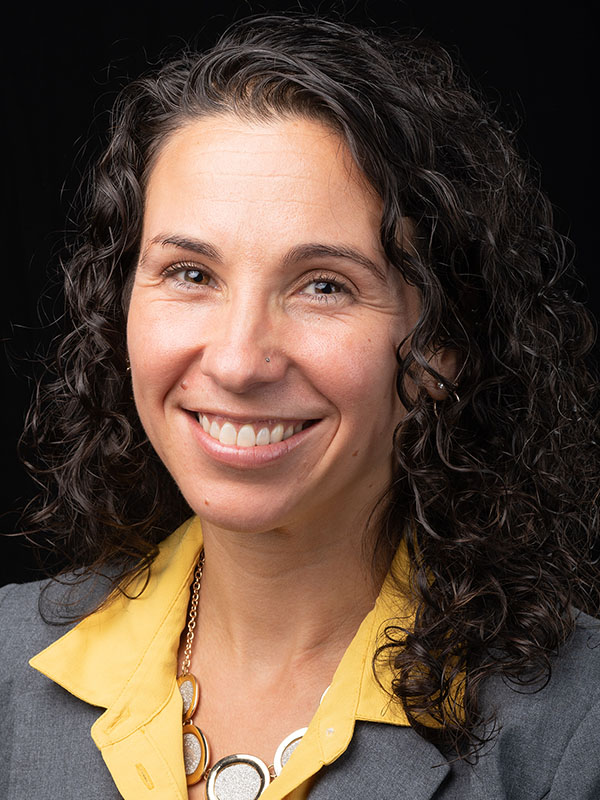
Shutterstock image/By niroworld
BOONE, N.C. — As colleges and universities across the country, including Appalachian State University, have adapted their academic delivery methods to help slow the spread of COVID-19, more learning content than ever has migrated online.
This response to the pandemic has moved the dial on accessibility awareness — and raised the demand for accessibility and accommodations.
The university has long been proactive — and compliant with the law — in supporting accessibility initiatives, and many resources were in place long before the pandemic.
The Office of Disability Resources (ODR) ensures individuals with disabilities are provided equal access at App State. As part of that office:
- University Libraries provides accessible technologies for in-library use and checkout.
- The Center for Academic Excellence provides training and services for learning technology and classroom accessibility.
- The Web Services team provides support and services for department website accessibility compliance.
- The Digital Accessibility Working Group was established in 2017 to help support and promote accessibility knowledge, resources and adoption across campus.
Still, according to App State ODR Director Maranda Maxey, pre-COVID-19, the university “never had this level of online presence. It has been a hard hit, but it’s going to be a lift for inclusion of accessible materials moving forward,” she said.
“Suddenly, since COVID,” she said, “accommodations and considerations are being made for the general public that persons with disabilities have fought for for years.”
Maxey said the increased demand for digital access by so many can move ADA compliance into the 21st century. Passed more than 30 years ago, before wide use of the internet, the ADA did not take online access into consideration. “ADA wasn’t created without the web in mind or with the web in mind — it wasn’t relevant. Now it’s really relevant,” Maxey said.
ODR champions digital accessibility — the right for every person to access information fully, equally and independently, Maxey said.
The term accessibility refers to the right to access. Everything that is public-facing is required by law to be accessible — shopping, traveling and entertainment are just a few examples. For digital accessibility, for example, all public-facing videos must have closed captioning.
The general public has increasingly discovered the advantages of accessibility put in place for those with disabilities, Maxey said, offering this example: A parent pushing a stroller or a delivery person with an overload of packages benefits from automatic door openers.
She cited another, less obvious example: Captioning not only helps those who are hard of hearing/deaf to access audio information, but can also reinforce verbal material and increase comprehension for English as a second language (ESL) learners, nontraditional students and visual learners. “Having alternate formats of materials so someone can participate has nontraditional benefits,” she said.
“Still, in the digital world,” she said, “many think accommodations, such as providing closed captioning or formatting text for people using screen readers, are burdensome. Accessibility aligns with our university’s strategic priorities — sustainability, retention and inclusion — and recognizing disabilities is a critical component to diversity.”
On the right track

Appalachian State University’s Maranda Maxey, director of the Office of Disability Resources. In 2017, Maxey and Tom Van Gilder, director of learning technology services in App State’s Center for Academic Excellence, established a Digital Accessibility Working Group to help support and promote accessibility knowledge, resources and adoption across App State’s campus. That working group helped the university migrate learning content online during COVID-19. Photo by Chase Reynolds

Tom Van Gilder, director of learning technology services in Appalachian State University’s Center for Academic Excellence. Van Gilder and Maranda Maxey, director of App State’s Office of Disability Resources, established a Digital Accessibility Working Group in 2017 to help support and promote accessibility knowledge, resources and adoption across App State’s campus. That working group helped the university migrate learning content online during COVID-19. Photo submitted
While Maxey could not see COVID coming, she and Tom Van Gilder, director of learning technology services in the Center for Academic Excellence (CAE), were proactive pre-COVID, working to ensure App State had resources that could be utilized with increased demand for online access. The two established a Digital Accessibility Working Group (DAWG) in 2017 to help support and promote accessibility knowledge, resources and adoption across campus.
Through the group’s efforts, accessibility.appstate.edu was launched in 2018 with a focus on three areas: information for those creating materials, information for users, and support and resources for both groups.
During the pandemic, as more and more faculty moved to online delivery, the 16 DAWG members have acted as online champions, educating and assisting campus partners in creating accessible materials and training trainers in departments and divisions campuswide.
DAWG also urges faculty to encourage students to create accessible content for their peers. “Many needs are invisible,” Maxey pointed out. “Screen readers, text-to-speech — they are invisible needs. You can’t look at a person and know they need it. Faculty and students have to anticipate.”
Maxey said ODR has worked hard to stay ahead in working with faculty on making accommodations for students. “We check the schedules of students when we know accessible content is going to be needed, and we reach out to that faculty member to provide them with what is going to be required. What we don’t know is the students we don’t know about. Currently, there is an increase in students who struggle with online learning.”
Maxey said many students with disabilities who haven’t needed accommodations within the face-to-face format may think they will be able to manage easily online and that the materials will be accessible. By the time they realize they need help, she said, they have fallen behind.
Maxey said ODR has always had solid support at App State. “Our area has been really valued,” she said, adding that because of increased demand of services, she was able to create a new position and hire App State’s first accessible technology consultant to promote and ensure the accessibility of web-based resources, content development and learning technologies.
The consultant, Matt Sauthoff, serves as the primary contact for technical assistance and resources related to accessible content development software, hardware, databases, web resources, networks and mobile devices in relation to accessibility.
“While COVID has pushed us as a university,” Maxey said, “there have been benefits to the awareness of accessibility and ensuring inclusivity for individuals with disabilities. While there is much progress to be made, many advancements have been made, and we have key partnerships in place for continued growth in the area of accessibility.”
What do you think?
Share your feedback on this story.
About the Division of Academic Affairs
The Division of Academic Affairs at Appalachian State University is dedicated to fostering student success, cultivating innovation and preparing students to lead purposeful lives — upholding the university’s longstanding tradition of service and leadership. Through its integrated efforts across academic programs, student support services, enrollment management and arts engagement, the division ensures App State provides a holistic and enriching educational journey for all Mountaineer students. Academic Affairs encompasses the degree-granting College of Arts and Sciences, College of Fine and Applied Arts, Beaver College of Health Sciences, Reich College of Education, Walker College of Business, Hayes School of Music and University College, as well as the Williams School of Graduate Studies, the Honors College and 10 other units — including Student Affairs, Enrollment Management, and Arts Engagement and Cultural Resources — that support the innovative, interdisciplinary and integrative Appalachian Experience. Learn more at https://academicaffairs.appstate.edu.
About Appalachian State University
As a premier public institution, Appalachian State University prepares students to lead purposeful lives. App State is one of 17 campuses in the University of North Carolina System, with a national reputation for innovative teaching and opening access to a high-quality, cost-effective education. The university enrolls more than 21,000 students, has a low student-to-faculty ratio and offers more than 150 undergraduate and 80 graduate majors at its Boone and Hickory campuses and through App State Online. Learn more at https://www.appstate.edu.



![How NCInnovation Is Rethinking Economic Development in North Carolina [faculty featured]](/_images/_posts/2026/02/rethinking-economic-development-600x400.jpg)







